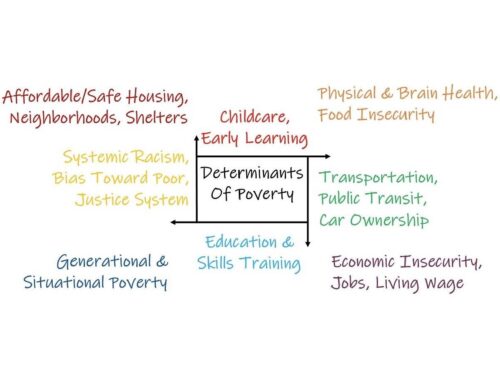A national study suggests that the program Getting Ahead in a Just-Gettin’-By World (Getting Ahead) results in positive psychosocial changes for participants from poverty. These positive changes may empower them to overcome obstacles that keep them from moving out of poverty.
The study finds that participants’ mental health, social support, hope, goal-directed behavior, planning and knowledge about poverty increased while participating in the program. Additionally, their stress levels decreased.
“These changes could be quite powerful in the long run for people who are often at the bottom of the social and economic ladder, potentially empowering them to conquer obstacles that lie in the way of improving their circumstances,” said Elizabeth A. Wahler, Ph.D., assistant professor at Indiana University School of Social Work and the researcher who conducted the study.
Getting Ahead is a workbook and 45-hour workshop used by organizations across the United States and abroad to help people living in poverty learn about how poverty impacts them and their communities. The program was created by Philip DeVol, who also wrote “Bridges to Sustainable Communities” (2010). DeVol is an international trainer for aha! Process, his publisher.
Getting Ahead guides participants, called “investigators,” in identifying resources and setting goals to increase those resources. Ideally, the program includes community support to help investigators address barriers such as bad credit, unemployment, difficulty with transportation, lack of affordable housing, high debt and physical and mental health problems.
In addition to the psychosocial benefits, the study found that investigators graduated from the program with a greater understanding about how to begin getting ahead while living in poverty. They gained practical knowledge such as how to avoid financial predators, what kind of rent they can afford, what kind of interest can be legally charged, and how to navigate different systems in their communities. They also gained greater knowledge of themselves and what kind of resources they need to move forward.
Since “Getting Ahead” was first published in 2004, 64,000 copies have been sold for use in such diverse settings as social service agencies, hospitals, prisons, workforce development, drug courts, domestic violence shelters, housing programs, schools and colleges. It has been used in five foreign countries and more than 40 U.S. states. Additionally, “Getting Ahead” has been translated into Spanish, Slovak and Czech.
While several local studies have found potential benefit in Getting Ahead, Wahler’s is the first large-scale study to examine the program’s effectiveness and the mechanisms by which it may be helping people.
The study asked investigators in 45 Getting Ahead groups at 19 sites across the country to complete surveys before and after the program. In total, 215 investigators completed both the baseline and follow-up surveys. Investigators exhibited diversity in race/ethnicity, gender, marital status, employment status and income levels and were drawn from both rural and urban settings.
The study also found that while race/ethnicity, gender, age, rural and urban subgroups benefited at similar levels, men and investigators with learning problems did not experience the same gains as comparison subgroups. However, the study found that investigators with mental health and/or chemical dependency problems benefited at levels similar to those without such barriers.
A third research area was the mechanics by which Getting Ahead affected participants. The study asked investigators which aspects of Getting Ahead they found most helpful. Among the top responses were:
- Learning about the 11 resource areas everyone needs to live well
- Completing the self-sufficiency assessment
- Developing a plan to increase their personal resources
- Having good group facilitators
- Having a welcoming, comfortable group environment
“The results of this evaluation demonstrate that Getting Ahead, when used according to the model, appears to be effective with investigators who have multiple and complex barriers to economic mobility and stability,” Wahler writes in the study.
According to Wahler, the next step should be research into whether these psychological and social gains translate into behavioral outcomes, such as changes in job searching, education seeking, and overcoming barriers to economic stability.
The study, called “Getting Ahead in a Just-Gettin’-By World: Program Evaluation Results,” can be found here. It was commissioned by Philip DeVol.
Update: Wahler reviews the study results in an article titled “A Group-Based Intervention for Persons Living in Poverty: Psychosocial Improvements Noted Among Participants of ‘Getting Ahead in a Just-Gettin’-By World’” published in the journal Social Work with Groups.








